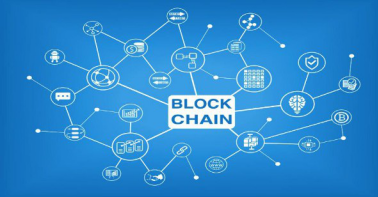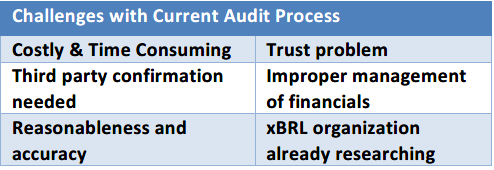CA. Ankit Danawala
Toolkit for future Finance Professionals, Accountants and Auditors
“We stand on the brink of a technological revolution that will fundamentally alter the way we live, work and relate to one another. In its scale, scope and complexity, the transformation will be unlike anything humankind has experienced before.” – by Klaus Schwab
INTRODUCTION TO BLOCKCHAIN AND ITS REVOLUTION
Blockchain Technology is perhaps the most innovative, much hyped and technological interests of the 21st century, and yet the comprehensive understanding of its substructure, integration, practical and legal fundamentals are woefully missing among the stakeholders and legal practitioners.
Blockchain is distributed database existing on multiple computers at the same time. It is constantly growing as new sets of recordings, or ‘blocks’ are added to it. Each block contains a timestamp and a link to the previous block, so they actually form a chain. The database is not managed by a particular body; instead everyone on the network gets a copy of the whole database. Old blocks are preserved forever and new blocks are added to the ledger irreversibly, making it impossible to manipulate by faking documents, transactions and other information. All blocks are encrypted in a special way, so everyone can have access to all the information but only a user who owns a special cryptographic key is able to add a new record to a particular chain. In addition, cryptography is used to guarantee synchronization of copies of the blockchain on each computer (node) in the network.
 Blockchain is one type of a distributed ledger. Distributed ledgers use independent computers (referred to as nodes) to record, share and synchronize transactions in their respective electronic ledgers (instead of keeping data centralized as in a traditional ledger). Distributed infrastructure is technology that allows the distribution of trusted value transfer and execution — the disintermediation of intermediaries — when the network becomes the intermediary.
Blockchain is one type of a distributed ledger. Distributed ledgers use independent computers (referred to as nodes) to record, share and synchronize transactions in their respective electronic ledgers (instead of keeping data centralized as in a traditional ledger). Distributed infrastructure is technology that allows the distribution of trusted value transfer and execution — the disintermediation of intermediaries — when the network becomes the intermediary.
With Blockchain you turn any contract into a program that will be executed only when both contracting parties enter their keys, thereby agreeing to a contract. The same program can track information from external data sources (i.e. stock prices, weather forecasts, news headlines and everything else that can be analyzed by a computer) and create contracts that will be automatically executed when certain conditions are met. This mechanism is called “smart contracts”, and the areas of their possible application are almost infinite.
BLOCK CHAIN BRINGS TRIPLE ENTRY ACCOUNTING SYSTEM
transfer between wallet addresses in the same distributed, public ledger, creating an interlocking system of enduring accounting records. Since the entries are distributed and cryptographically sealed, falsifying them in a credible way or destroying them to conceal activity is practically impossible. Transactions go through a contract in real-time maintained by a 3rd party agent or entry which both parties connect to and agree.
So, blockchain is by definition independent, transparent and secure. The advantages of such a distributed ledger are obvious: being it cost and risk reduction, data security or transactions transparency, companies from most industries can surely benefit from this new technology.
BLOCK CHAIN AND AUDIT INNOVATION
With the proliferation of the internet over the last few decades, we have experienced exponential progression towards a digital world. Blockchain is set to be the next step on this evolution. While block chain’s design seems sound from a security standpoint, the block chain environment is still susceptible to various technology risks. The efficiencies that will be gained through audit automation are likely to be balanced by the requirements for new procedures to
address the risks associated with the blockchain environment. These developments will likely shape a blockchain audit where IT controls will gain a more pivotal role in providing a reasonable assurance that the financial statements as a whole are free from material misstatement.
BLOCK CHAIN RESHAPING FINANCIAL SERVICE INDUSTRY
Today, we are all pretty much used to sharing information through a decentralized interactive platform – the Internet. But when it comes to sending money or other valuables, we usually have to use the same old services provided by centralized financial institutions (i.e. banks). Sure, there are methods of making payments via the Internet (the most obvious example is Paypal), but they usually require integration with a bank account or credit card, otherwise they cannot really be used. Blockchain technology offers an attractive opportunity to get rid of this ‘extra link’. It’s perfectly designed to take on all three most important roles of the traditional financial services: registration of transactions, identity verification and contracting.
Moreover, blockchain can be used not only for sending digital money but as well for tracking physical goods in a supply chain, helping companies to monitor their suppliers in real time. This particular feature can be very useful even outside the financial services sector viz. capital markets, cross border payments, letter of credit, title protection, legal inheritance, record keeping, diamonds gold, patients’ health records and many more.
CONCLUSION
Block chain offers hope for changing the operational complexity of business and social structures globally. Overall, more needs to be done for institutions and citizens to become aware and understand the implications of distributed ledger technologies – the values, challenges and complexity. However, there are no doubts that blockchain technology holds the key to advancing the world and unlocking more value than can be comprehended at the moment. Undoubtedly, it can be said that blockchain will become an integral part of our daily life in the very near future, and now might be the perfect time to benefit on it.
Source:
www.blockchainresearchinstitute.org
www.slideshare.net
www.accountingtoday.com
blogs.thomsonreuters.com











Thanks a lot
Thanks for sharing this new technology.
Wonderful article thank you